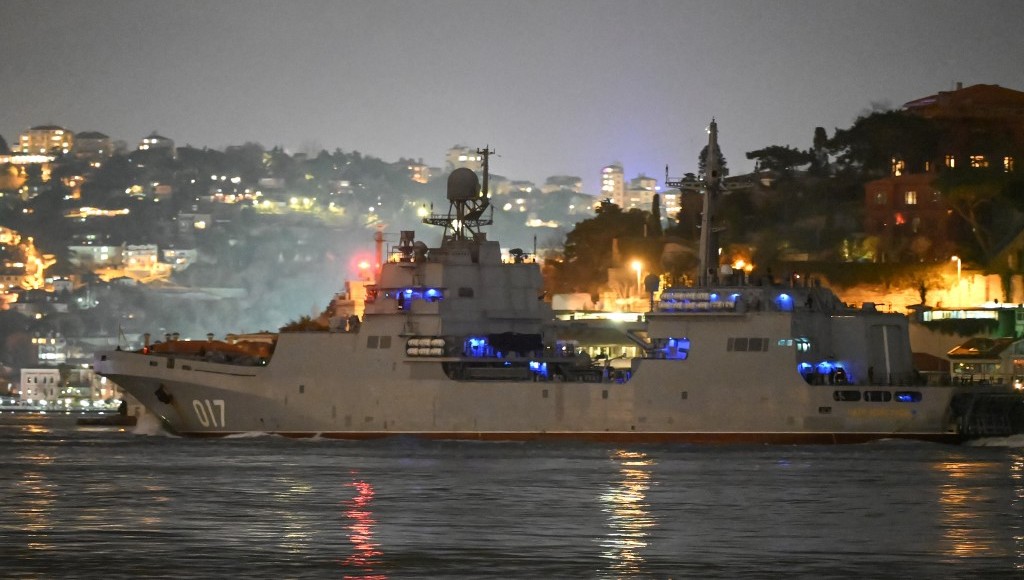Fatih Yurtsever*
Tensions in the Black Sea are growing due to recent Russian naval activity. According to published NOTAMs covering February 13-19, 2022, Russia is closing large parts of the Black Sea and almost the entire Sea of Azov for missile and artillery live fire exercises. Oleg Nikolenko, the spokesman for the Ukrainian Foreign Ministry, strongly protested the Russian NOTAMs blocking part of the Black Sea, the Sea of Azov and the Kerch Strait under the pretext of naval exercises. The unprecedentedly large exercise area essentially obstructs international shipping in both seas, which has economic consequences for Ukrainian ports. Dmitry Peskov, the Kremlin spokesman, said the Russian fleet’s exercises in the Black Sea would not affect merchant vessels.
What is a NOTAM?
A Notice to Airmen (NOTAM), also known as a Notice to Air Missions (Federal Aviation Administration wording), is a notice containing information concerning the establishment, condition or change in any aeronautical facility, service, procedure or hazard, the timely knowledge of which is essential to personnel concerned with flight operations. To avoid endangering air and sea traffic during firing exercises at sea, a NOTAM is issued covering the area from the sea surface to a certain altitude. NOTAMs, however, should not restrict freedom of navigation, which is one of the fundamental principles of international law, and should not be exploited for political and military purposes.
What is Russia’s objective?
The Russian Navy’s activities to escalate tensions in the Black Sea are not limited to the NOTAMs. Landing ships RFS 102 Kaliningrad, RFS 126 Minsk and RFS 130 Korolev, the first three of seven landing ships of the Baltic and Northern Fleet, arrived at the Sevastopol naval base on Feb. 8, 2022. The other ships consist of RFS 117 Pyotr Morgunov and two Ropucha class ships, RFS 016 Georgy Pobedonosets and RFS 012 Olenegorsky Gornyak, which joined the Black Sea Fleet on Feb. 9. KILO Class submarine Rostov-na-Donu is planned follow on Feb. 11. The amphibious landing ships are made up of one Ivan Gren class, Pyotr Morgunov, and six Ropucha class ships. The Ivan Gren class can carry up to 13 main battle tanks, 40 armored vehicles and 300 troops. It can also carry two helicopters for airborne assault and logistics. The smaller Ropucha class ships can accommodate10 main battle tanks and 340 troops.
The Russian Black Sea Fleet has reached the capacity to conduct an amphibious assault on the Ukrainian coast. To strengthen his hand at the negotiating table, Russian President Vladimir Putin began to raise tensions in the Black Sea deliberately. The announced NOTAMs, as well as the deployment of additional landing ships to the Black Sea, aim to keep the possibility of an amphibious operation on the Ukrainian coast on the agenda.
After the annexation of Crimea, Ukraine lost around 70-75 percent of its naval forces. It does not have enough ships to protect its coasts, monitor the activities of Russian ships and prevent a possible amphibious operation. The actions of Russian ships can only be observed by US Navy Maritime Patrol aircraft and Global Hawk strategic drones conducting identification, search and reconnaissance (ISR) missions over the Black Sea. To keep the threat of amphibious operations on the agenda, Russia does not want the activities of landing ships to be tracked. For this reason Russia needs to prevent ISR missions in the air off the coast of Ukraine.
Russia says a NOTAM that covers a large part of the Sea of Azov was issued for guided missiles and gunnery exercises in the area. Because the Sea of Azov is shallow, only landing ships and patrol boats can sail there. Russian corvettes and frigates with guided missiles cannot safely navigate the Sea of Azov. For this reason, it is not realistic to issue a NOTAM for launching guided missiles in the Sea of Azov. Russia’s real intention is to restrict air traffic to prevent landing craft from being detected from the air over Bryansk and Mariupol.
How should Turkey react?
Russia has now turned the Black Sea into a Russian lake. With its amphibious power projection capacity, which is a strategic capability, Russia has elevated its power to the next level. Geopolitically, no country wants its neighbor to be more powerful than itself. Russia is trying to achieve its political goals by declaring NOTAMs in areas that include the Sea of Azov and much of the Black Sea without using military force, keeping only the possibility of using force on the agenda. In doing so, it violates the principle of freedom of navigation. Russia is misusing NOTAMs for purposes other than the NOTAMs’ proper mission. The balance of power in the Black Sea governed by the Montreux Convention was supposed to serve the security of all riparian states. However, Russia is shifting the balance of power in its favor by deploying landing ships of the North and Pacific fleets in the Black Sea. No one can claim that this naval power will not threaten Turkey in the near future. For this reason, Turkey should not allow the balance of power to shift further in Russia’s favor and should diplomatically oppose the restriction of the freedom of navigation in the Black Sea for military and political purposes.
* Fatih Yurtsever is a former naval officer in the Turkish Armed Forces. He is using a pseudonym out of security concerns.

